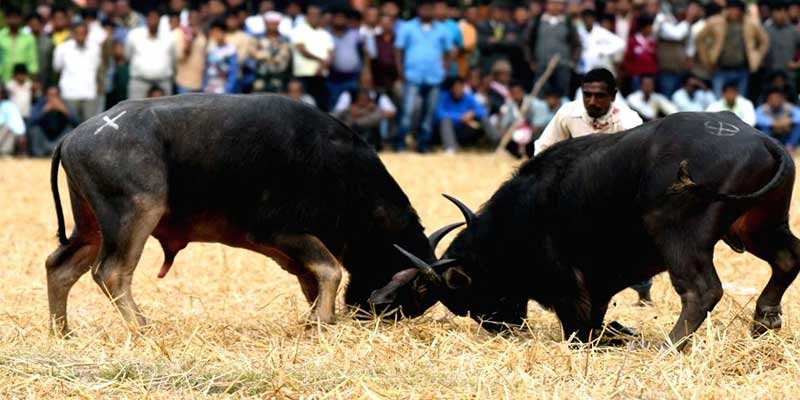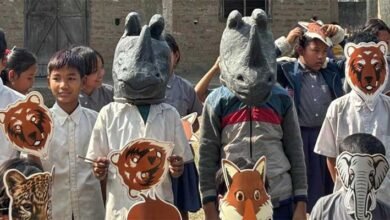Assam: High Court issues temporary ban on buffalo fights in State
In addition, the court directed the state to file an action taken report by February 6, 2024.

GUWAHATI- Gauhati High Court, in response to PETA India’s petition for interim relief, directed the Assam government to prohibit unauthorised buffalo fights in the state.
Justice Manish Choudhury observed that buffalo fights held in Assam after January 25, 2024 were prima facie illegal, as they were in violation of the time limit for holding such events imposed by the standard operating procedures (SOP) issued by the state government allowing Moh-Juj (buffalo fight) events.
Ahom Rule is a glorious chapter of Assam history: CM
“In particular, authorities of Nagaon district were directed to stop a buffalo fight scheduled to take place this weekend on the basis of evidence produced by PETA India. While proceedings in relation to PETA India’s plea for the state’s decision to allow such events to be deemed unconstitutional are to be decided, the court has ordered strict enforcement of the government’s SOP in the interim,” a statement from PETA India said on Thursday.
In addition, the court directed the state to file an action taken report by February 6, 2024.
Notably, the Assam government had on the occasion of Magh Bihu last month revived the buffalo and bulbul (songbird) fights, an age-old tradition, in the state after a nine-year hiatus following a ban by the Gauhati High Court responding to pleas that the practice was cruel to the birds and animals.
After the Assam government’s decision to allow buffalo fights, PETA India had filed a petition with the Gauhati High Court making the case for such events to be prohibited once again.
Manipur: Decomposed Body of Missing Youth Found in Chandel Dist
As evidence, PETA India submitted investigations into these fights which revealed that “terrified and severely injured buffaloes were forced to fight through beatings and that starved and intoxicated bulbuls were made to fight over food.”
“An investigation into a buffalo fight held in Ahotguri in Morigaon district of Assam on January 16, 2024, revealed that to instigate buffaloes to fight, their owners slapped them, pushed and shoved them, jabbed and struck them with wooden sticks, and pulled them by their nose-ropes to force them to approach other buffaloes,” PETA India claimed.
“When fights were underway, some owners and handlers jabbed the buffaloes with wooden sticks and whacked them with bare hands to upset them further. The buffaloes locked horns and fought, sustaining bloody wounds to their necks, ears, faces, and foreheads – many had injuries all over their body. The fights lasted until one of the two buffaloes broke away and fled,” it claimed.
“Owners and handlers dragged buffaloes around using ropes threaded through their sensitive nostrils. No shade, water, or food was provided for the buffaloes during the fight, a violation of the standard operating procedures for buffalo fighting issued by the Assam government,” it stated.
“PETA India has thanked Gauhati High Court for directing unauthorised buffalo fights to be immediately stopped in Assam, with action taken against the organisers,” PETA India advocacy associate Tushar Kol said in a statement.
“We hope the court will recognise that this cruelty is a clear violation of central law and prohibit these violent fights,” he said.
Jharkhand: Hemant Soren Arrested By ED In Land Scam Case
It may be noted that the Assam Cabinet had, in December 2023, approved detailed standard operating procedures (SoPs) for conducting this ancient Bihu tradition to ensure the prevention of animal cruelty during the traditional buffalo fights at Ahotguri.
The organising committees of these Bihu competitions were warned against any breach of the SOPs which might lead to severe consequences such as a five-year prohibition on both buffalo and bulbul bird fights.
It may be recalled that the Supreme Court, had in 2014, passed an order prohibiting all animal races and fights, thereby directing the Animal Welfare Board of India and the government to prevent infliction of unnecessary pain and suffering to animals.









